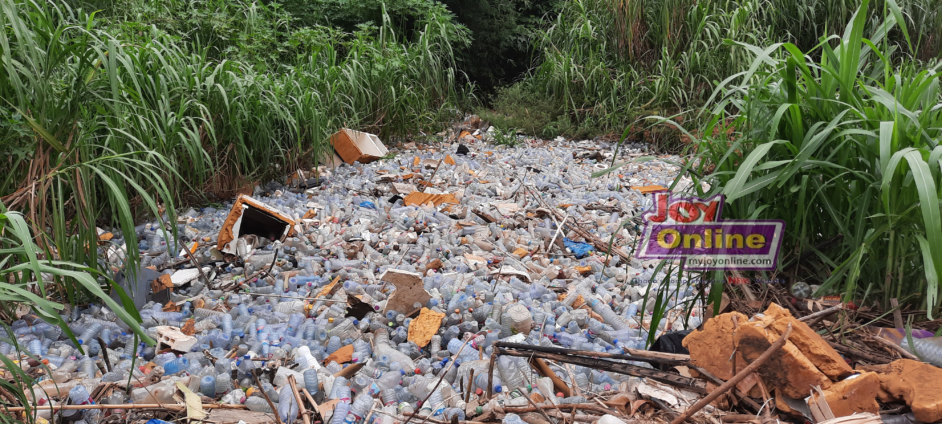One hundred and sixty financial institutions, along with two industry stakeholders globally, are urging governments to engage in negotiations for a comprehensive treaty aimed at ending plastic pollution.
The appeal was made at the fourth meeting of the Intergovernmental Negotiating Committee on Plastic Pollution (INC-4) which commenced last week and ended today, April 29.
The Finance Statement on Plastic Pollution is endorsed by signatories with a combined asset value of $15.5 trillion. These signatories represent different regions, including 38 countries from the Organisation for Economic Co-operation and Development (OECD), which are made up of major economic players like the United States, Canada, the United Kingdom, Germany, France, and Japan, among others.
Also, notable Asian financial institutions, including those from India, Indonesia, Singapore, Japan, and the Republic of Korea, have contributed 15 signatures to the statement. The final negotiation round is slated to take place in the Republic of Korea before the close of 2024.
By endorsing the Statement, these financial institutions recognize their pivotal role in mitigating the financial risks associated with plastic pollution. They seize this opportunity to articulate their expectations for a robust treaty, emphasizing the importance of an agreement that caters to the needs and concerns of all countries and parties involved.
CEO of Responsible Alpha and a Certified Ecologist, Gabriel Thoumi, says the significance of progress towards a treaty that is adaptable and inclusive, with provisions that can evolve over time to address emerging challenges effectively.
“We start today with a treaty and move forward afterwards with amendments as a treaty commits each of us whether public or private sector to collaborating and working together to solving the plastic pollution crisis.”
Head of UNEP FI, Eric Usher emphasizes the importance of redirecting both private and public financial resources toward achieving the objectives outlined in the treaty. This redirection is deemed critical in effectively addressing the challenge of plastic pollution.

“We ask Member States to take note of the call from a significant segment of the global finance industry to create a historic environmental treaty that takes into account the commercial challenges and the risks and opportunities associated with financing the solutions to this global pollution issue.”
The statement advocates for the treaty to be underpinned by binding regulations and commitments for governments, encompassing the entire life cycle of plastic. It emphasizes the need for a scientific foundation and a framework to engage all economic stakeholders in achieving its goals.
It also calls for harmonized targets throughout the plastics value chain and urges companies to evaluate and disclose risks and opportunities associated with plastic.
The statement highlights the significance of fostering a conducive policy landscape for transitioning to a sustainable and fair economy, proposing measures like extended producer responsibility schemes (EPR).
Experts say plastic pollution is intricately intertwined with the triple planetary crisis encompassing climate change, biodiversity loss, and pollution. Without intervention, plastic is projected to contribute up to 15% of greenhouse gas emissions by 2050, underscoring its pivotal role in exacerbating environmental degradation. Recognizing this, the 7th target of the Global Biodiversity Framework emphasizes the imperative to prevent, reduce, and ultimately eliminate plastic pollution.
The Finance Statement on Plastic Pollution underscores the interconnectedness of these environmental challenges and emphasizes the collective benefits of addressing plastic pollution for climate action, biodiversity preservation, and fostering a just transition.
CEO at the Principles for Responsible Investment, David Atkin highlights the intrinsic linkage between climate and nature issues, emphasizing the systemic risks they pose to industries and investors alike.
“With today’s announcement, investors are signalling their desire for governments to establish a clear, robust policy mandate to tackle the issue of plastic pollution, in keeping with efforts on climate and biodiversity. This mandate should call for an end to plastic pollution and be based on a scientific approach which orients all economic actors towards its objectives.”
The statement was prepared by UNEP FI, the Principles for Responsible Investment, Finance for Biodiversity Foundation, the Business Coalition for a Global Plastics Treaty, the Dutch Association of Investors for Sustainable Development (VBDO) and CDP.
Manager of External Relations & Sustainable Investing at the European Circular Bioeconomy Fund (ECBF), Clara Martinez said the initiative will trigger a systemic shift. This shift will not only spur transformations in market conditions but also promote the widespread adoption of cutting-edge technologies.
“By unlocking new avenues for sustainable growth, the private finance sector will be empowered to play a pivotal role in addressing plastic pollution. Today, ECBF seize and enhance investment opportunities in bio-based biodegradable materials and wish to see more investors redirecting financial flows towards impactful solutions that contribute to overcome such environmental threat.”
Latest Stories
-
Hearts of Oak reassign Ouattara as Special Advisor after hiring Didi Dramani Head Coach
21 seconds -
Fix the cracks first – Patrick Boamah advises NPP ahead of flagbearer race
3 minutes -
Ghana’s youth innovation model can power Africa – NYA boss tells Cape Town summit
4 minutes -
New Edubiase CEO reveals $24,000 payment owed to colts club in Salim Adams transfer saga
10 minutes -
John Jinapor tasks new VRA Board to lead Ghana’s energy transition
11 minutes -
MTN Group supports economic governance training for public officials
11 minutes -
A Shameful Absence: The fall of Hearts and Kotoko in African football’s new era
27 minutes -
VRA reaffirms commitment to sustainable community development across operational areas
27 minutes -
GIPC to sanction businesses failing to register Technology Transfer Agreements
28 minutes -
I am jealous of NDC creatives in Mahama’s government – Socrate Safo
31 minutes -
Mining companies urged to invest in technology for safe operations
37 minutes -
What crime did they commit? – Ntim Fordjour slams Mahama gov’t over police action on teachers
44 minutes -
BoG acted within labour law terminating employment of some persons – Austin Gamey
1 hour -
‘Work to make NPP attractive’ – Former Constituency Chairman charges
1 hour -
NPP no longer upholds its tradition of firm leadership – Patrick Boamah observes
1 hour

